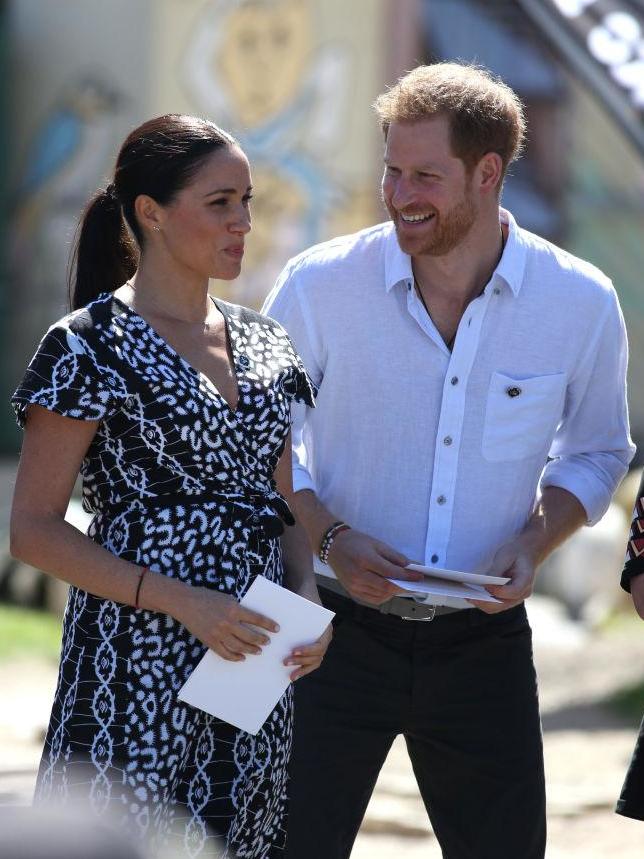Meghan Markle delivers powerful speech about being a 'woman of colour' as she arrives in South Africa
'Each time a woman stands up for herself, without knowing it possibly, without claiming it, she stands up for all women'
Your support helps us to tell the story
From reproductive rights to climate change to Big Tech, The Independent is on the ground when the story is developing. Whether it's investigating the financials of Elon Musk's pro-Trump PAC or producing our latest documentary, 'The A Word', which shines a light on the American women fighting for reproductive rights, we know how important it is to parse out the facts from the messaging.
At such a critical moment in US history, we need reporters on the ground. Your donation allows us to keep sending journalists to speak to both sides of the story.
The Independent is trusted by Americans across the entire political spectrum. And unlike many other quality news outlets, we choose not to lock Americans out of our reporting and analysis with paywalls. We believe quality journalism should be available to everyone, paid for by those who can afford it.
Your support makes all the difference.The Duchess of Sussex has publicly spoken about her position in the world as a “woman of colour'' during a powerful speech about female empowerment.
On Monday, Meghan Markle and Prince Harry kicked off their ten-day tour of southern Africa in Cape Town.
The couple’s first stop on day one was the Nyanga township, where they attended a workshop with the Mbokodo Girls’ Empowerment Program, which provides self-defence and empowerment training to girls who have suffered major trauma.
After greeting members of the community, the duchess stood on a tree stump to deliver a speech.
“May I just say that while I am here with my husband as a member of the royal family, I want you to know that for me, I am here as a mother, as a wife, as a woman, as a woman of colour and as your sister,” Markle said, before the crowd erupted into cheers.
The comments mark the first time that the Duchess has addressed being a woman of colour since she married Prince Harry in 2018.
The former actor has spoken out about the difficulties involved with being categorised as “ethnically ambiguous” in the past. In 2017, Markle explained that casting directors were often confused, wondering whether she was “Latina”, “Sephardic” or “exotic Caucasian”.
During her speech in Cape Town, the 38-year-old also spoke about her strong stance on feminism, sharing a quote from American poet Maya Angelou.
“Each time a woman stands up for herself, without knowing it possibly, without claiming it, she stands up for all women," Markle said.
The duchess later thanked some of the teenage girls she and Prince Harry had spoken to earlier in the day for being so “open and honest” about the dangers women face in Africa and how they are tackling them.
“The rights of women and girls is something that's very close to my heart and a cause I've spent the majority of my life advocating for, because I know that when women are empowered, the entire community flourishes,” Markle added.
”Please know that my husband and I have been closely following what you've been experiencing here, as best as we can from afar. Everything that is being done on the ground is making the great change that you not only need but that you deserve“.
Prince Harry also told the women and girls present: "No man is born to cause harm to women. This is learned behaviour and we need to break that cycle."
Earlier this month, campaigners took to the streets of Cape Town following a series of attacks to protest at what they claimed was their government's failure to deal with the problem of violence against women

The duchess is an active humanitarian campaigner, particularly on the topic of gender equality, who has spoken about women's empowerment many times.
Markle’s activism famously started at a young age. At just 11-years-old she forced a soap manufacturer to alter an advert after she wrote a letter to the then first lady Hillary Clinton and other high-profile figures complaining that it implied women belonged in the kitchen.

Join our commenting forum
Join thought-provoking conversations, follow other Independent readers and see their replies
Comments